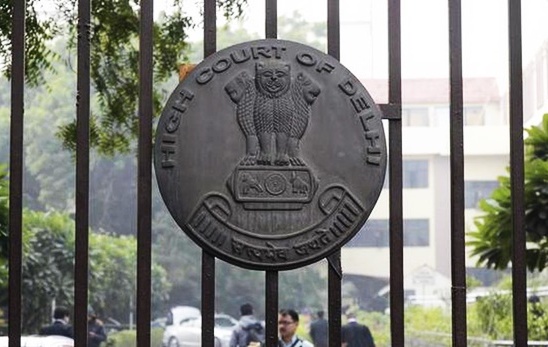Anushka Mansharamani
The Delhi High Court has made sure that people have access to justice during the COVID-19 pandemic.
The Delhi High Court has helped to spread awareness of the virus and aimed to provide basic amenities and treatment to those affected by the virus.
Before the pandemic, the Delhi High Court held a two-midnight hearing, which was unprecedented.
The two hearings were related to the Nirbhaya gang rape and murder case, and the other one was related to the Delhi riots that took place in the northeast region.
During the pandemic, the Delhi High Court took cognizance of cases relating to health workers, sanitation staff, salaries, PPE kits, etc.
After the announcement of the lockdown on 25th March, the High Court, the next day itself started a video conference hearing for matters of urgent importance.
In the Delhi riots case, the Court instructed the police to ensure the victims, safety, and treatment.
Justice S Muralidhar, expressed “anguish” when the Delhi Police failed to register the FIRs against hate speech by 3 BJP leaders.
After this incident, a notification was passed on the same day by the central government for the transfer of the case to the Punjab and Haryana High Court.
There were questions raised about the timing, but Justice Muralidhar stated that he was informed about the transfer before the Delhi riots case.
On 20th March, the convicts in the Nirbhaya Case were executed even after repeated pleas were filed in the High Court and the Apex Court to stop their execution.
The court further heard pleas by the students and citizens that were stranded in other countries due to the pandemic to correctly instruct the concerned authorities and found proper solutions.
Interim bail orders were issued by the courts during the pandemic and the Supreme Court orders were followed for reducing the number of inmates in over-crowded jails in the form of interim bails and paroles.
By the time the implementation of Unlock-1 took place all benches of the High Court had started to hear cases online.
The Delhi High Court instructed the Centre and the government to take appropriate measures to protect the victims of domestic violence and to provide basic amenities to all.
The High Court also appointed officers to address the problems faced by the daily wage workers and the migrants in the relief camps.
It further directed the government to make sure that the COVID-19 test sample results were declared within 24-48 hours and that there was proper availability of beds, ICU, ambulance, etc.
The Delhi High Court encouraged the government to use RT-PCR tests instead of the Rapid Antigen Test for more accuracy.
The High Court started physical hearings in September at a small scale due to repeated requests however, the court noted that 90% of advocates preferred online video conferencing.
The Delhi High court passed an order to stop the blanket extension of interim bail orders however, the Supreme Court put a stay on the order.
The Delhi High Court finally decided to extend the restriction of functioning until 16th January 2021.
The High Court via an interim order allowed Amazon to oppose before regulators a Rs 24,713 crore deal by Kishore Biyani-led Future Retail to sell assets to Reliance Retail but ruled that the US e-commerce giant’s attempt to control Future Retail is violative of FEMA and FDI rules.
The Delhi High Court further heard other cases like the plea by actor Rakul Preet Singh for the media connecting her with the drug case of Rhea Chakraborty and various other pleas that challenged Chief Minister Arvind Kejriwal and Deputy CM Manish election alleging that they violated the poll campaign norms in the elections.
The court also set aside Jitender Tomar, ex-law minister’s election for false declaration, and declined to suspend Kuldeep Sengar, BJP MLA’s case of life imprisonment for raping a minor girl.
Therefore, the Delhi High Court took responsibility and important decisions during the pandemic.

